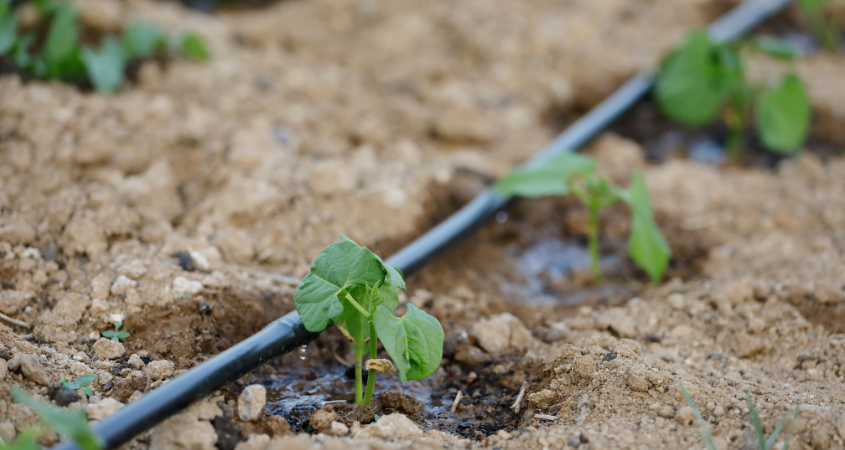
Sustainable water use in agriculture is a critical component of responsible farming practices that aim to balance the needs of crop production with the preservation of water resources. Let’s explore the key facets of sustainable water management in the agricultural context.
Modern irrigation techniques such as drip irrigation and precision irrigation systems make efficient use of water resources. These methods target water delivery directly to the root zones of plants, minimizing water wastage and maximizing its effectiveness. By optimizing water efficiency, farmers contribute to both environmental conservation and economic viability.
Techniques like rainwater harvesting, soil moisture management, and cover cropping help retain water in the soil, reducing the reliance on external water sources. By implementing these practices, farmers not only conserve water but also build resilience in their agricultural systems against water scarcity and climate change.
Sustainable water use involves strategic crop selection based on the local water availability and climate conditions. Matching crops with the natural water availability of a region reduces the risk of water stress and enhances overall crop health. This approach ensures that agriculture remains environmentally responsible and economically viable.
Monitoring water usage is integral to sustainable practices. Farmers employ advanced technologies, such as soil moisture sensors and satellite imagery, to assess real-time water needs. This precision agriculture approach enables precise irrigation scheduling, preventing overwatering and minimizing water runoff. By adopting these technologies, farmers enhance their ability to make informed decisions, promoting sustainability in water use.
A cornerstone of sustainable water use is farmer education. Providing farmers with information and training on best practices in water management empowers them to make environmentally conscious decisions. Workshops, extension services, and laboratory water analysis recommendations contribute to a knowledgeable farming community committed to sustainable water practices.
In conclusion, sustainable water use in agriculture is imperative for ensuring the resilience and longevity of farming systems. By optimizing water efficiency, implementing conservation practices, selecting crops judiciously, embracing precision agriculture, and testing irrigation water regularly, farmers contribute to a sustainable and responsible approach to water use in agriculture.
#Waterislife #Watermanagement #Waterconservation
Order our services and get to know how to improve your soil for better yeilds.